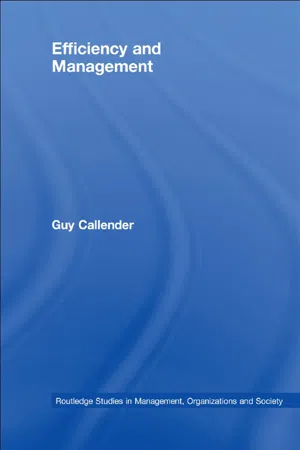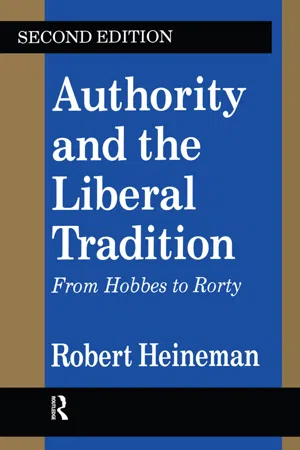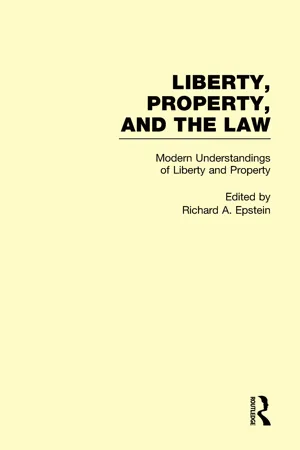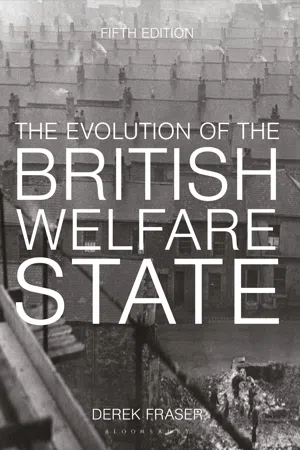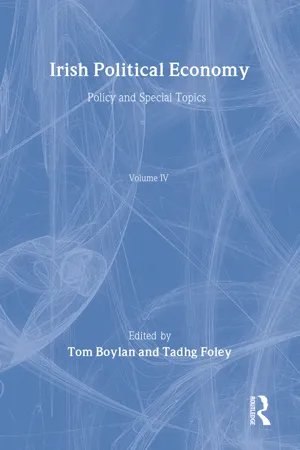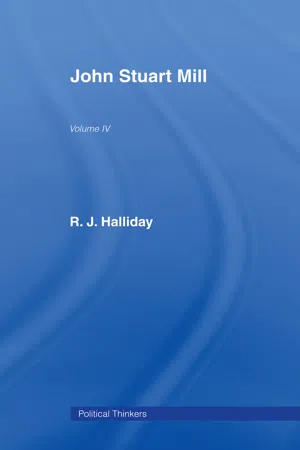History
Laissez-faire
Laissez-faire is an economic theory that advocates for minimal government intervention in the marketplace. It promotes free trade, private enterprise, and limited regulation, allowing businesses to operate with minimal interference from the government. This approach was influential during the Industrial Revolution and continues to be a key concept in economic and political discussions.
Written by Perlego with AI-assistance
Related key terms
Related key terms
1 of 4
Related key terms
1 of 3
6 Key excerpts on "Laissez-faire"
- eBook - ePub
- Guy Callender(Author)
- 2008(Publication Date)
- Routledge(Publisher)
At the time that democracy became more egalitarian and diverse in its objectives, Laissez-faire became the populist economic doctrine that dominated UK economic policy. Arguably, one consequence was the comparative decline in national certainty of purpose and macro-efficiency. In place of national goals and international dominance, the individual rights of owners to pursue their own paths to their ‘profits on investment’ 97 became a dominating economic force. This chapter has evaluated a diversity of qualitative economic issues that have emerged in Anglo-American economies over the past two centuries. The aim of this historical review has been to underline the comparative speed with which some Anglo-American economies have shifted, at times rapidly, from Laissez-faire to centralized models of economic policy on a pragmatic basis. The chapter also raises the question: is the basis of economic theory, and therefore the foundations of its dominant position in the social sciences, objectively scientific or socio-political? The answer to this question may never be entirely clear. Yet the varying influences that have been identified in the historical analysis of the changing economic epochs of the past 120 years, and the overtly loose linkage made by Friedman between the size of government and the size of the tithe (which is a culturally-embedded belief rather than a universal measure), pose fundamental questions about the supposed scientific basis of economics - eBook - ePub
Authority and the Liberal Tradition
From Hobbes to Rorty
- Robert Heineman(Author)
- 2020(Publication Date)
- Routledge(Publisher)
Laissez Faire Becomes Public PolicyThe proponents of limited government and economic individualism had widespread public support during much of the latter nineteenth and early twentieth centuries in the United States; and their views soon became part of the supreme law of the land as enunciated by the nation’s highest court. The laissez faire position gained additional credence from the tremendous economic and technological advances that occurred during this period. As a result, many Americans became convinced that governmental power was not necessary for domestic prosperity; and, thus, they saw no need to formulate an articulate theoretical basis for government as a democratically responsive force for social direction.William Graham Sumner and Minimal Government
The foremost academic spokesman for laissez faire ideas in latter nineteenth-century America was, without a doubt, William Graham Sumner. An instructor at Yale University from 1868 until the early twentieth century, Sumner spent the better part of the period from 1870 through the early 1890s popularizing the doctrine of limited government and individual freedom. He was more than a devotee of the ideas of Spencer, however. His thought represents a fairly comprehensive amalgam of the currents comprising the intellectual revolution of the time. Adherence to the ideas of individualism and laissez faire originated from his early acquaintance with the thought of the classical economists.1 Much of his methodology seems to have been derived from his educational years spent abroad in Germany. His acceptance of Spencer’s ideas and their Darwinian parallels originally stemmed not from the Social Statics but from the later The Study of Sociology.2 Richard Hofstadter’s statement that Sumner “brought together three great traditions of western capitalist culture: the Protestant ethic, the doctrines of classical economics, and Darwinian natural selection…”3 - eBook - ePub
Modern Understandings of Liberty and Property
Liberty, Property, and the Law
- Richard A. Epstein(Author)
- 2013(Publication Date)
- Routledge(Publisher)
I will carefully avoid using the term laissez faire to mean what only unscrupulous or ignorant opponents of it and never its exponents make it mean, namely, philosophical anarchism, or opposition to any governmental power or activity whatsoever. I will in general use the term to mean what the pioneer systematic exponents of it, the Physiocrats and Adam Smith, argued for, namely, the limitation of governmental activity to the enforcement of peace and of "justice" in the restricted sense of "commutative justice," to defense against foreign enemies, and to public works regarded as essential and as impossible or highly improbable of establishment by private enterprise or, for special reasons, unsuitable to be left to private operation. Both the Physiocrats and Adam Smith gave some sanction to the limited expansion of governmental activity beyond these limits. Following their example, I will not deny the laissez faire label to any writer who in general accepts the limitations I have enumerated to governmental activity, even if he occasionally, incidentally, and inconsistently relaxes these limitations slightly to permit either of a restricted list of minor exceptions or of temporary suspension of the laissez faire code in case of emergency or abnormal conditions, such as war, famine, or earthquake.No social doctrine has a meaningful historical life except with reference, explicit or implicit, to an existent or conceivable alternative or array of alternatives. It is a useful simplification as a first approximation to regard the alternatives to laissez faire as lying along a straight line measuring degrees of governmental intervention in the field of economic activity. Looking in one direction, this straight line represents Herbert Spencer's road to "The Coming Slavery," or Friedrich Hayek's "Road to Serfdom." It is only since the eighteenth century "Enlightenment" that slavery and serfdom have been regarded as pejorative terms. Those well-disposed towards laissez faire should therefore perhaps use in preference such terms as "Road to Tyranny" or "Road to Totalitarianism," labels which as far as I know no one would ever have chosen for highways on which he wished mankind to travel. Looking in the other direction, however, this highway also represents the Road to Anarchy. In any case, along this road are many conceivable stopping-places, and no one may be interested in either of its terminal points. Route 1, a great national highway which connects Boston, New York, Philadelphia, Baltimore, and Washington, begins at Fort Kent in Maine and ends at a sand-dune at the southern tip of Florida. Except on the arbitrary assumption that travel on this road, in either direction, is totally without benefit of brakes, the terminal points of our metaphorical road are often assigned an extravagant degree of practical significance in discourse in this field. Until quite recent years, actual and vital discussion in the public forum has turned mainly on the comparative merits as resting-places along our highway of points not greatly distant from each other, or perhaps more accurately, as between no movement at all and a limited amount of movement, sometimes in both directions simultaneously, from the existing resting-place. Before World War I the issue in debate was never, as far as I can see, between laissez faire and totalitarianism, or between the welfare state and philosophical anarchism. As I will be dealing mostly with pre-1914 facts or ideas, I will spend no time on St. George-and-the-dragon types of argument. - eBook - ePub
The Evolution of the British Welfare State
A History of Social Policy since the Industrial Revolution
- Derek Fraser(Author)
- 2017(Publication Date)
- Bloomsbury Academic(Publisher)
© Derek Fraser 2017 Derek Fraser The Evolution of the British Welfare State https://doi.org/10.1057/978-1-137-60589-4_6Begin Abstract6. Laissez-faire and state intervention in the mid-nineteenth century
End Abstract6.1 Summary
The new industrial society was underpinned by a middle-class ideology usually termed political economy or Laissez-faire. A firm belief in the virtues of a free market was based on the writings of Adam Smith, David Ricardo and Thomas Malthus and the application of their ideas was promoted by Jeremy Bentham, with his Utilitarian philosophy which would produce ‘The Greatest Happiness of the Greatest Number’. The working-class response to this class ideology was a combination of mutual aid and a belief in self-help, most prominently expressed in the individualism to be found in the writings of Samuel Smiles. Historians have drawn attention to the paradox that the great age of Laissez-faire ideology was also a period of remarkable, if unplanned and unsystematic, growth in state intervention. The chapter explores the historiographical ways in which this paradox may be resolved.6.2 I Social ideas to c .1870
The case studies in social policy described in previous chapters were at once a part of and a response to the social philosophy which emerged in the first half of the nineteenth century. Inevitably such an explosive social change as the Industrial Revolution was accompanied by new ideas in economic and social affairs. Industrial capitalism came to be justified by the so-called political economy of a group of thinkers known collectively as the ‘classical economists’. The demonstration of the general principles of economic theory which explained the role of capital and free competition (the essential elements of the new society) crystallised into a Laissez-faire - eBook - ePub
- Tom Boylan(Author)
- 2021(Publication Date)
- Routledge(Publisher)
In other words, Laissez-faire falls to the ground as a scientific doctrine. I say as a scientific doctrine; for let us be careful not to overstep the limits of our argument. It is one thing to repudiate the scientific authority of laissezfaire, freedom of contract, and so forth; it is a totally different thing to set up the opposite principle of State control, the doctrine of paternal government. For my part I accept neither one doctrine nor the other; and, as a practical rule, I hold Laissez-faire to be incomparably the safer guide. Only let us remember that it is a practical rule, and not a doctrine of science; a rule in the main sound, but like most other sound practical rules, liable to numerous exceptions; above all, a rule which must never for a moment be allowed to stand in the way of the candid consideration of any promising proposal of social or industrial reform. It is from this point of view that the argument I have been urging assumes a practical aspect. Laissez-faire, freedom of contract, and phrases of like import, have of late become somewhat of bugbears with a large number of people. It is enough to mention them, to discredit by anticipation the most useful practical scheme. What did we hear during the discussions on the Irish Land Bill? Political Economy again and again appealed to as having pronounced against that measure. Now, what did this mean? Simply that the Bill interfered with freedom of contract, violated the rule of Laissez-faire —charges perfectly true, and which would have been decisive against the Bill had these phrases really possessed the scientific authority which members of Parliament supposed them to possess. Now, it is against this understanding of the doctrine that my argument is directed - eBook - ePub
- R J Halliday, R. J. Halliday(Authors)
- 2004(Publication Date)
- Routledge(Publisher)
Nor is the Autobiography much help on these matters: there are clear differences between the various drafts in all of the passages dealing with Mill’s response to socialism. This chapter is an attempt to clear up some of these doubts and confusions by relating Mill’s understanding of Laissez-faire and socialism more carefully to his moral and political philosophy. We can begin with the Laissez-faire principle itself. In the first instance, we may offer a simple and unrefined characterisation. With Mill, the principle did not limit the province of government ‘to the protection of person and property against force and fraud’. He rejected this notion out of hand in the Principles ; already in the essay on ‘Coleridge’, published eight years before the first edition of the Principles, he had represented the ‘let alone’ doctrine as ‘generated by the manifest selfishness and incompetence of modern European governments’. 4 The origins of the ‘let alone’ doctrine are somewhat elusive. Usually, it is taken to be a common eighteenth-century understanding of Laissez-faire, associated most perhaps with Smith, Mandeville and the Physiocrats. 5 But each examination of the classical economists’ views on policy, whether of Ricardo on monetary matters, or of Nassau Senior on factory legislation, seems to throw up exceptions to a policy of ‘let alone’. 6 There was, all the same, a marked tendency in some eighteenth-century thinkers to subordinate political to social phenomena. Society was conceived as an autonomous and efficient unity, analogous either with a healthy body or with an efficient machine. This unity required no external political direction and no detailed public administration. The distribution of benefits which followed as an unintended consequence of individual agency in any case brought about a result very close to that which a rational legislator would seek to bring about
Index pages curate the most relevant extracts from our library of academic textbooks. They’ve been created using an in-house natural language model (NLM), each adding context and meaning to key research topics.
Explore more topic indexes
Explore more topic indexes
1 of 6
Explore more topic indexes
1 of 4
